

Data Science for Decision Making Program
Learn key elements from Data Science and Economics to make the correct inferences from data.
full time
About this Master’s program
The demand for Data Scientists is exploding, driven by the increasing availability of data and the advance of machine learning. Data collection and analysis have become crucial components of decision making in today’s private and public organizations and many have started to develop specialized departments for this purpose.
The ability to extract, handle, and analyze large amounts of data is therefore a key skill in today’s job market.
However, gathering and summarizing data is not enough. Data science can only improve decision making with an understanding of how choices affect outcomes. Data Scientists must therefore increasingly combine standard tools in machine learning with an understanding of the causal relationships behind the data.
The BSE Master’s Program in Data Science for Decision Making integrates key elements from Data Science and Economics to give graduates the ability to deal with all types of data and make the correct inferences from it.
Students will be trained in the use of cutting-edge machine learning methods and of statistical models that will help them to provide effective data support in the decision-making process of any organization. Students will, for example, be able to extract information from the structure of social networks, satellite images, large libraries of digitized text, read and visualize data in maps and make sense of geo-localized information and time series data. They will also be able to use this data for forecasting and evaluate different policy options or business strategies through models built on an understanding of causal relationships.
Study with leading researchers and practitioners
Data Science for Decision Makers integrates different approaches from Data Science, Statistics, Econometrics and Economics in a unique program taught by leading academics in the fields of Economics, Operations, and Statistics, as well as experienced professionals from the analytics industry and public policy consultants from organizations.
Work with real data on interdisciplinary teams
Students learn with real data to solve decision-making problems hands-on through homework, applied training sessions, and an independent Master’s project.
The collaborative environment of the program will expose students to working with colleagues from many different academic and professional backgrounds on interdisciplinary teams.
The Data Science for Decision Making Master’s offers a special way to bring skills we teach in the program to real-life problems: the Barcelona School of Economics Master’s Thesis Challenge! The challenge allows outside organizations to submit problems that are then tackled by small student groups. The solution is then submitted as a Master’s thesis and presented in front of the respective organization.
Here are some of the organizations BSE student teams are working with:
- Columbian Energy, Predictive Modeling for Day-Ahead Pricing in Electricity Markets: A Methodological Approach for Colombia
- Glovo, Analyzing the Impact of Stock-Outs on Sales of Products in an Online Delivery Application
- Innova, BiciMAD: Bike-Sharing System Dataset Creation and Preliminary Hourly Demand Prediction using Machine and Deep Learning Approaches
- Koa Health, Behavioural predictors of personality inferred by passive smartphone sensing
- Novartis, Decoding Abnormal Returns: Unraveling Insights from Pharmaceutical Sector Earnings Calls through Graph-Enhanced Text Analysis
- Novartis, Comparative Analysis of Modeling Approaches for Value-at-Risk Forecasting in the Pharmaceutical Sector: An econometric and ML approach
- Oxera, Automated Feature Extraction from EU Merger Documents: Novel Approaches using LLMs
- UNDP / UNICEF, Harnessing Big Data News Media For Conflict Prediction and Anticipatory Decision-Making
- UNHCR, Forecasting Global Refugee Flows: A Machine Learning approach using non-conventional data
- Virtuleap, Harnessing Big Data News Media For Conflict Prediction and Anticipatory Decision-Making
Is “Data Science for Decision Making” for you?
The Decision Making track is tailored to accommodate both recent graduates and those with work experience in private and public organizations. All students will benefit from a combination of training in programming, theoretical model techniques and hands-on applications which will allow them advance any decision making process in any organization. Students with work experience will be able to see the data in their own work environment with completely new eyes and realize the potential of untapped data resources like text and images.
Discover what makes this program truly exceptional
Integration of Data Science and Economics: Learn data science techniques with economic theory for decision-making support.
Real-World Data Application: Work with complex data sources to solve decision-making problems.
Learn from leading researchers: Professors specialized in the latest Economics, Operations, and Statistic research.
Solve problems submitted by private and public organizations: Work in small teams to solve real decision-making problems submitted by thought leaders in the private and public sector and present your solution to them.
Career Preparation: Graduates go on to work in tech, government, and international organizations.
Meet the Program Directors

Hannes Mueller
PhD, London School of Economics

Christian Fons-Rosen
PhD, London School of Economics
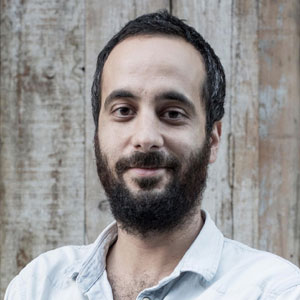
Pau Milán
PhD, Universitat Pompeu Fabra
Ready to make a difference? This program is designed for
Students who are passionate about data and learning strong analytical skills. Here’s why it is perfect for you:
- You are a recent graduate with strong analytical skills.
- You want to specialize in applied data work.
- You have work experience with data in enterprises, government, or international organizations.
What skills and knowledge will you learn?
The ability to extract, handle, and analyze data is a key skill in today’s job market
Data Analysis
Solve Decision-Making Problems
Programming Skills
Cutting Edge Tools
Approach Problems
Professors
BSE Professors are renowned researchers who are published in leading Economics Journals.
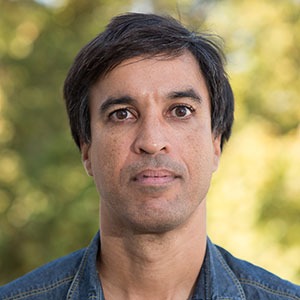
Argimiro Arratia
PhD, University of Wisconsin
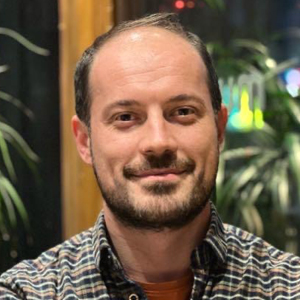
Besim Bilalli
PhD, Poznan University of Technology and UPC

Elena Bortolato
PhD University of Padova

Christian Brownlees
PhD, University of Florence

Maite Cabeza Gutés
PhD, University of California Davis
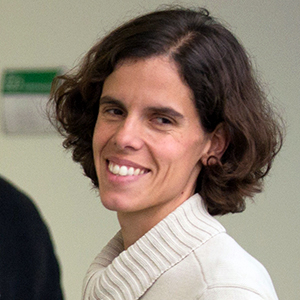
Caterina Calsamiglia
PhD, Yale University

Jesus Cerquides

Bruno Conte
PhD, IDEA (UAB and BSE)
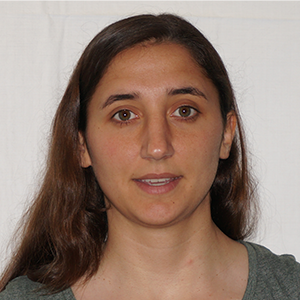
Anna Corretger
Master's in Data Science, BSE
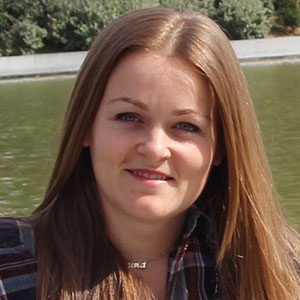
Laura Cozma
Master's in Data Science, BSE

Ruben Enikolopov
PhD, Harvard University

Christian Fons-Rosen
PhD, London School of Economics

Roger Garriga Calleja
Master's in Data Science, BSE

Laurence Go
PhD in Applied Economics, Wharton School

Arnault Gombert
Master's, ENSEA ParisTech and Université Paris-Saclay

Clement Gorin
PhD, University of Lyon

Petar Jovanovic
PhD, UPC and Université libre de Bruxelles

Gaël Le Mens
PhD, Stanford Graduate School of Business
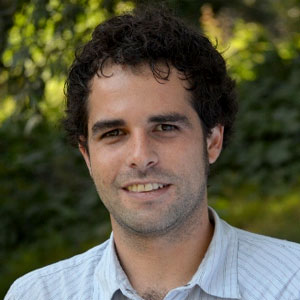
Gianmarco León-Ciliotta
PhD, University of California-Berkeley
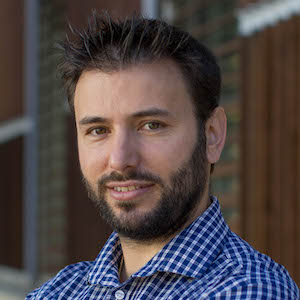
Joan Llull
PhD, CEMFI

Javier Mas Adell
Master's in Data Science, BSE

Laura Mayoral
PhD, Universidad Carlos III de Madrid

Pau Milán
PhD, Universitat Pompeu Fabra

Hannes Mueller
PhD, London School of Economics
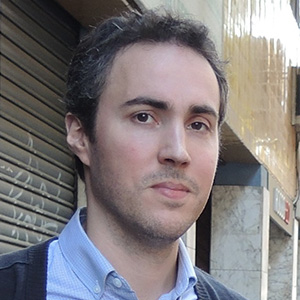
Daniel Navarro-Martínez
PhD, Universitat Jaume I

Edoardo Nemni
Technical University of Denmark

Florens Odendahl
PhD, Universitat Pompeu Fabra
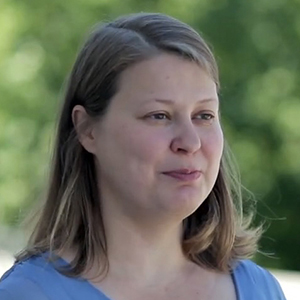
Maria Petrova
PhD, Harvard University

Aleix Ruiz de Villa
PhD (Mathematical Analysis), UAB

Hanna Wang
PhD, University of Pennsylvania
Program Schedule
In September, students are required to take a brush-up course in Mathematics and Statistics.
Students who can provide evidence of sufficient past coursework may be exempt: An Intermediate Course in Mathematics and Statistics.
Instructor: Sophie Brochet.
Term 1 (September-December)
Term 2 (January-March)
| Course title | Credits | Professor(s) |
|---|---|---|
| Mandatory | ||
| Computational Learning and Deep Learning | 3 | Elena Bortolato |
| Causal Inference and Machine Learning | 3 | Aleix Ruiz de Villa, Laura Mayoral |
| Introduction to Text Mining and Natural Language Processing | 3 | Hannes Mueller |
| Electives | ||
| Geospatial Data Science and Economic Spatial Models | 3 | Bruno Conte |
| Networks: Concepts and Algorithms | 3 | Pau Milán |
| Financial Econometrics | 6 | Christian Brownlees |
| Behavioral Decision Making I: Attention, Experience and Influence* | 6 | Gaël Le Mens |
Term 3 (April-June)
| Course title | Credits | Professor(s) |
|---|---|---|
| Mandatory | ||
| Master Project | 6 | Hannes Mueller, Christian Brownlees, Jesus Cerquides |
| Advanced Methods in Natural Language Processing | 3 | Arnault Gombert |
| Electives | ||
| Forecasting and Nowcasting with Text as Data | 3 | Hannes Mueller, Florens Odendahl |
| Intelligent Data Development | 3 | Laura Cozma, Javier Mas Adell |
| Machine Learning for Finance | 3 | Argimiro Arratia |
| Applications of Deep Learning in High Dimensional Data Analysis and Image Processing | 3 | Edoardo Nemni, Clement Gorin |
| AI Ethics | 3 | Carles Murillo Mir |
| Big Data Management for Data Science | 3 | Besim Bilalli, Petar Jovanovic |
| Behavioral Decision Making II: The Psychology of Economics Decisions* | 6 | Daniel Navarro-Martínez |
| Extra Workshop | ||
| Text to Speech | 0 | Alexander von Oppenbach |
| Cloud Computing | 0 | Mifra Burneo |
Master’s Projects
Examples of Master's Projects
Class of 2024:
- How to generate new versions of an original character? An application of LoRA and DreamBooth Fine-Tuning of Stable Diffusion Models by Maëlys Boudier, Natalia Beltrán and Arianna Michelangelo.
- War Through the Lens of AI: Image Analysis of the Russia-Ukraine War in Spanish News by Oliver Gatland, Viktoriia Yuzkiv and Angelo Di Gianvito.
Class of 2023:
- Harnessing Big Data News Media for Conflict Prediction and Anticipatory Decision-Making by Giovanna Chaves, Margherita Philipp, and Luis Quiñones.
- Corpus Construction and Social Media Analysis about Immigration in Chile by Andrés Antonio Couble, Mathias Schindler, and Kalliope Stassinos.
- Forecasting Global Refugee Flows: A Machine Learning Approach using Non-conventional Data by Daniela de los Santos, Eric Frey, and Renato Vassallo.
Students in this Master’s program can use problems submitted by organizations and turn them into a Master’s project. Here are some recent examples:
- Glovo, Analyzing the Impact of Stock-Outs on Sales of Products in an Online Delivery Application.
- Novartis, Comparative Analysis of Modeling Approaches for Value-at-Risk Forecasting in the Pharmaceutical Sector: An econometric and ML approach.
- Oxera, Automated Feature Extraction from EU Merger Documents: Novel Approaches using LLMs.
- UNDP / UNICEF, Harnessing Big Data News Media For Conflict Prediction and Anticipatory Decision-Making.
- UNHCR, Forecasting Global Refugee Flows: A Machine Learning approach using non-conventional data.
Master’s degree awarded by UAB and UPF
Upon successful completion of the BSE Data Science for Decision Making Program, students will receive a Master’s Degree in Data Science awarded jointly with Universitat Autònoma de Barcelona (UAB) and Universitat Pompeu Fabra (UPF).
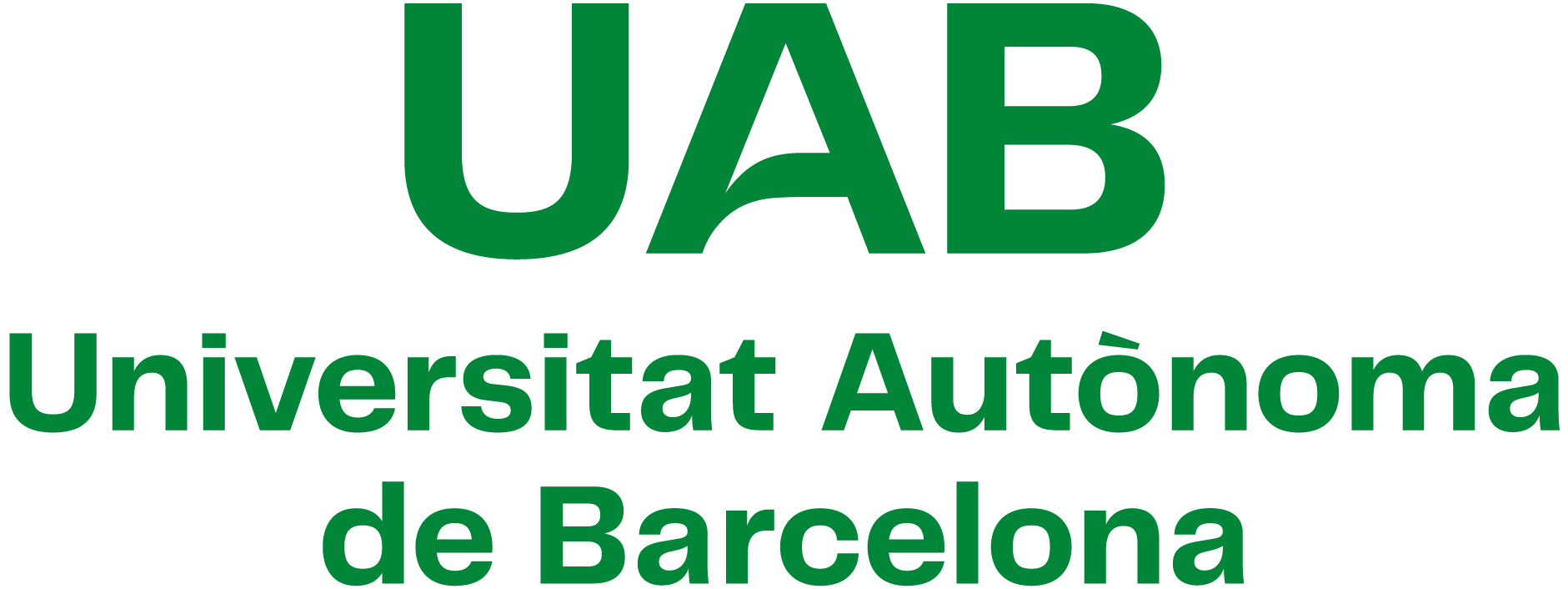
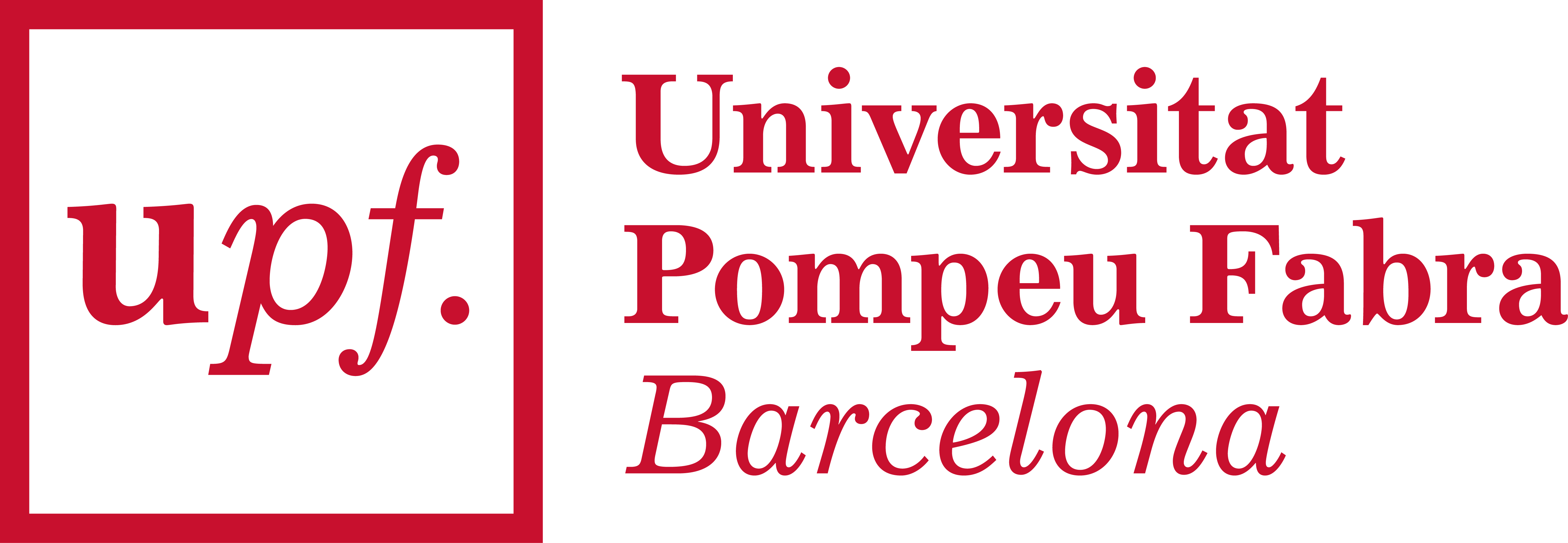
All Barcelona School of Economics Master’s degrees have been recognized by the Catalan and Spanish Education authorities within the framework of the Bologna Process (in Spanish, “Master Universitario o Master Oficial”).
Placement Rate, 2024 Cohort
Within 6 months of graduation:
- Job titles: Data Scientist, Data Analyst, AI Consultant, Intern, Research Assistant
- Industries: Technology (37%), Consulting (21%), Research & Academic Institutions (16%)
- Companies: European Central Bank (ECB), IBM, BlackRock, BNP Paribas, Deloitte
- Higher Education: 9.5% go on to a PhD or further education.
Work Internationally
Cities with the most alumni





Testimonials

Luke Atazona
The highlight of this program has been the amazing professors, who are reputable in the world in their area. The program offers a good balance of theory and application which are very useful for today’s labor market. I have learned a lot of data science theories and been able to apply them in numerous case studies. I have also been able to broaden my knowledge in programming.
Why study a Master’s at BSE
Ranked among the top institutions for economics research in the world by RePEc.
Prestigious economists including Nobel Laureates guide the development of BSE Master’s.
Learn from well-renowned faculty.
Study in vibrant Barcelona.
Admissions and Entry Requirements
At BSE, we look for excellence. Key elements of a strong application are a high GPA, a sound statement of purpose, and standout reference letters. Strong knowledge of Economics and good quantitative skills are also recommended.
Requirements:
- An undergraduate/bachelor/grado/laurea, or equivalent degree from an accredited college or university (for Bologna degrees, a minimum of 180 ECTS are required).
- University diploma in Economics, Finance, Engineering, Mathematics, Statistics, or Business Administration. Students with academic backgrounds in other subjects will be considered.
- An advanced level of English language skills: TOEFL score of 90 or above; IELTS Academic Test score of 6.5 or above, Duolingo English Test 120 points.
Candidates will also be evaluated on the following admission criteria:
- Outstanding academic record.
- Quantitative skills.
- Reference letters.
FAQ
Below you will find our most frequently asked questions but do not hesitate to contact the BSE Admissions Team to learn more about our Master’s programs.
What are the most common student profiles in the Data Science for Decision Making Program?
25 students from 14 countries (84% international) in 2024-2025
Most represented countries this year:
- Spain (4)
- Germany, India, Russia (3 students each)
Most common academic backgrounds:
- Economics (16)
- Business Administration (3)
Years of work experience:
- 0-1 years (8)
- 1-2 years (5)
- 2-3 years (6)
- 3 years and above (6)
Who hires Data Science for Decision Making Program graduates?
Graduates of the Data Science for Decision Making Program secure roles across sectors such as technology, consulting, and research and academic institutions. Learn more about the specific positions, companies, and locations of these placements (cohorts of 2021, 2022 and 2023) in this document.
Which rankings is the Barcelona School of Economics listed in?
The BSE Rankings Page displays this information.
Can I apply to more than one program?
You may apply to up to three programs for the same academic year
Can I apply for tuition funding?
We will automatically assess whether students meet the eligibility criteria for tuition waivers, and we will also promote eligible candidates for scholarships provided by external funders.
What level of English do I need to have for this Master’s?
An advanced level of English is required: TOEFL score of 90 or above; IELTS Academic Test score of 6.5 or above; Duolingo English Test 120 points
Do I need to take the GRE General Test to apply?
The GRE General Test is optional, but we highly recommend you submit it with your application
Can I enter another BSE Master's directly from this program?
Students who successfully complete the Data Science for Decision Making Program are eligible for direct admission to the following programs, if they stay for a second consecutive year:
Master’s Degree in Economics and Finance:
OR
Master’s Degree in Specialized Economic Analysis:
- Competition and Market Regulation
- Economics of Energy, Climate Change, and Sustainability
- Economics of Public Policy
- International Trade, Finance, and Development
- Macroeconomic Policy and Financial Markets
A 20% discount will be applied on the second program’s tuition fees. All BSE Alumni are eligible for this discount at any time. Learn more about taking a second BSE Master’s degree.
Related Master’s Programs

Related Research Publications
See allEconomics. All rights reserved.






